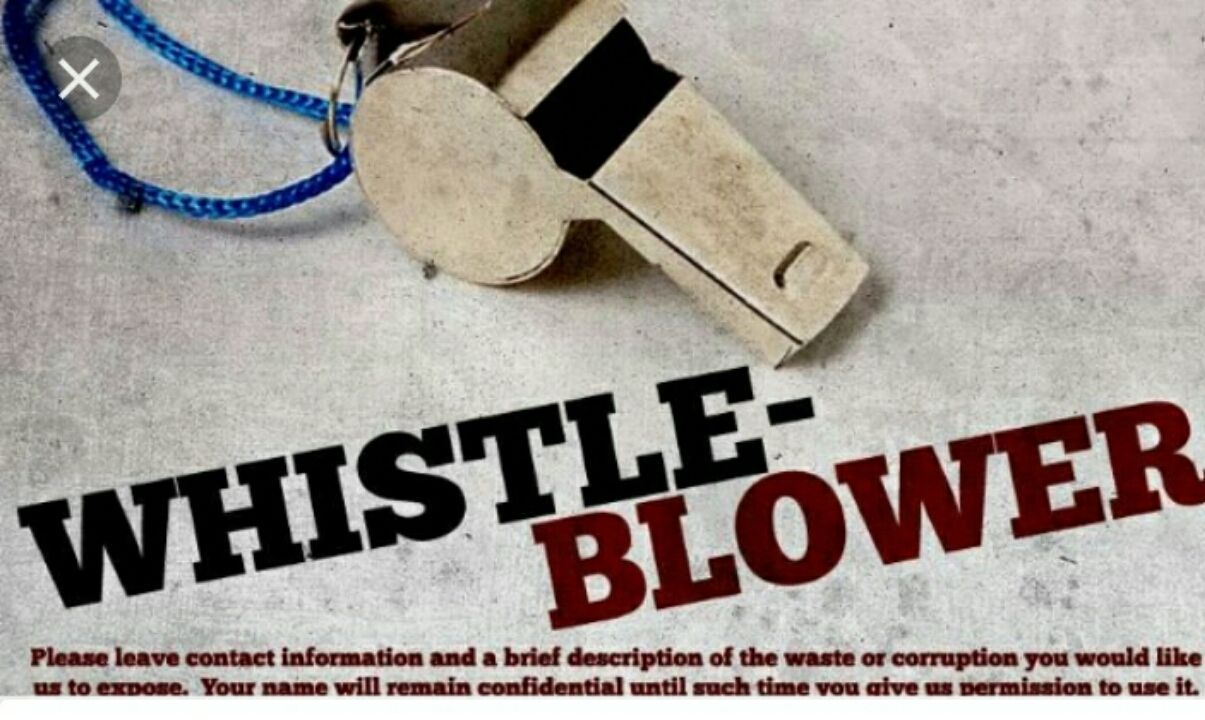Whistle blowing policy and the fight against corruption in Nigeria
Corruption is defined as a form of dishonest or unethical conduct by a person entrusted with a position of authority, often for personal benefits. It includes bribery, embezzlement and other unwholesome practices. In other words, corruption is when a political officeholder or government official uses his or her office for personal gains.
is defined as a form of dishonest or unethical conduct by a person entrusted with a position of authority, often for personal benefits. It includes bribery, embezzlement and other unwholesome practices. In other words, corruption is when a political officeholder or government official uses his or her office for personal gains.
whistleblower is a person who voluntarily discloses to the Federal Government of Nigeria, through the Federal Ministry of Finance, a possible misconduct or violation that has occurred, is ongoing, or is about to occur with specific concerns which are in the public interest. The identity of the whistle blower is confidential and a reward of 2.5%-5% of the recovered fund is given to the whistle blower.
In just few months of the implementation of the whistle blowing policy the EFCC has been able to recover a huge amount of looted fund.
However, the truth is that it is difficult to successfully fight corruption in Nigeria. This is because of the high profile politicians and the so-called elite and their cronies are involved.
Interestingly, from what we have seen so far, the whistle-blowing policy has the prospect of successfully fighting corruption and reviving Nigeria’s economy. Well-meaning Nigerians should, therefore, support the policy in its entirety. We need to work together to save our dear country from corruption